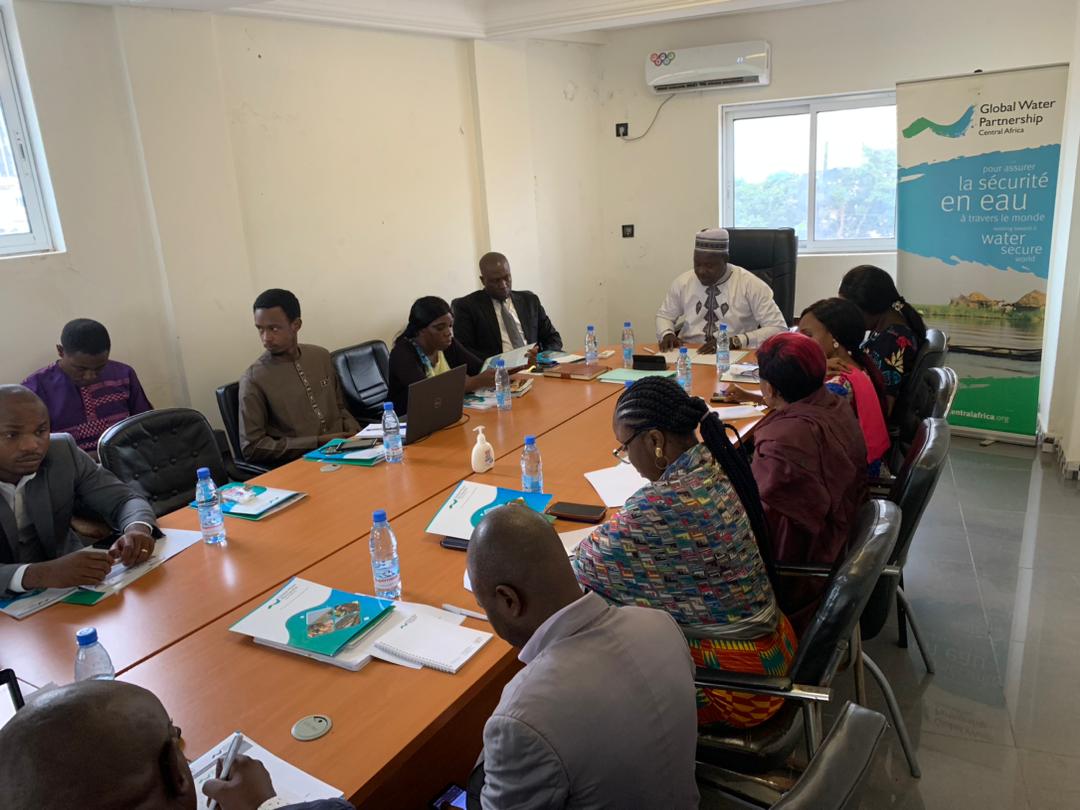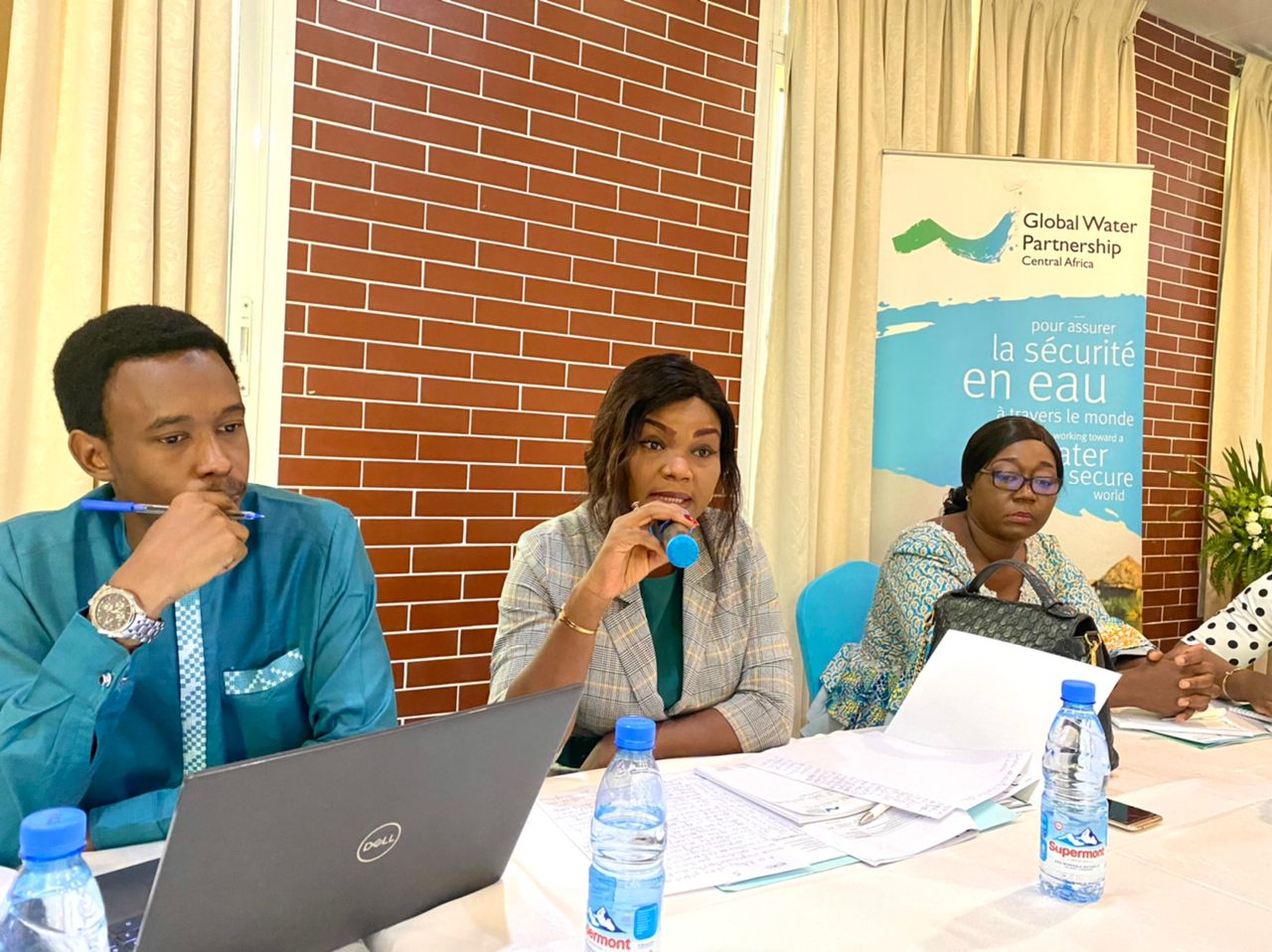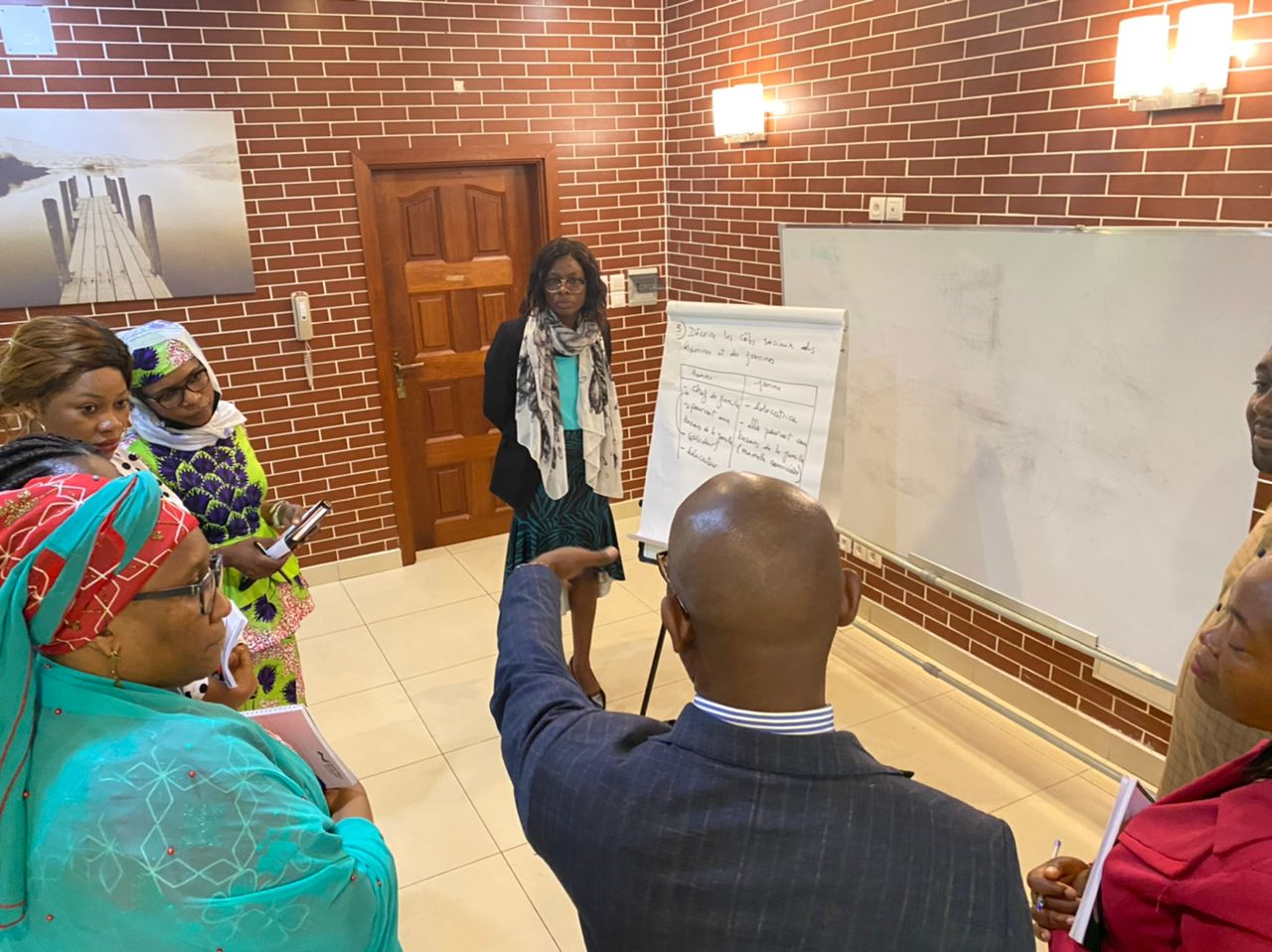The training which took place in Douala on November 9th – 11th 2022 aimed at improving the knowledge and capacity of the members of the working group in charge of revising Cameroon’s 1998 Water Law and of the PPBS chain on the Gender Transformative Approach (GTA) and Gender Responsive Budgeting (GRB).
Under the Water, Climate, Development, and Gender (WACDEP-G) program, funded by the Austrian Development Agency (ADA), GWP-Cameroon is supporting the first-ever revision of the Water Law since it was adopted in 1998. This support builds on a study carried out by GWP-Cameroon which revealed that the 1998 Water Law is gender-blind (no consideration of gender). The three-day training is the second phase in the support process, with the first being a meeting held in October between representatives of GWP-CAf, the Ministry of Water Resources and Energy (MINEE), and the committee in charge of revising the Water Law to identify the gender-related training needs of the committee.

Based on the outcome of this exchange, specific training modules were developed and delivered to the revision committee and representatives of the PPBS chain during this gender training. Speaking at the opening session, Madam Tatiana Biloa, MINEE representative reminded participants of the 3rd Principle of IWRM which focuses on the role played by women in water management before adding, “This training will not only allow the integration of the Gender Transformative Approach in the revised Water Law but will assist in budgeting taking into consideration this approach in the short run”.

Speaking to the media, the Regional Coordinator of GWP-Central Africa, Mr. Djibrilla Mohamadou reiterated the importance of the program support to the Ministry of Water in the revision process. “This law was established in 1998 and now that it is set to be revised, it is important for us and the government to ensure that gender is taken into consideration to ensure a more inclusive approach to water management in the country”.
GWP-Cameroon’s gender expert, Mr. Ngoro Joseph delivered modules on gender (misconceptions, key definitions, gender markers), the importance of considering gender in Laws, Plans, Programs, and Policies, and models of Gender Sensitive Budgeting amongst others. The workshop featured group discussions and practical sessions to identify some of the gender misconceptions in order to better understand what gender is or isn’t.

Participants were edified on the rights-based and equity-focused GTA and the duty of government to meet women's differentiated needs through effective and equitable public budgeting and expenditure.
The training ended on a high note with participants ready to take more gender-transformative decisions in the revision process of Cameroon's 1998 Water Law as well as other planning, implementation, and evaluation processes in the water and climate sector.
